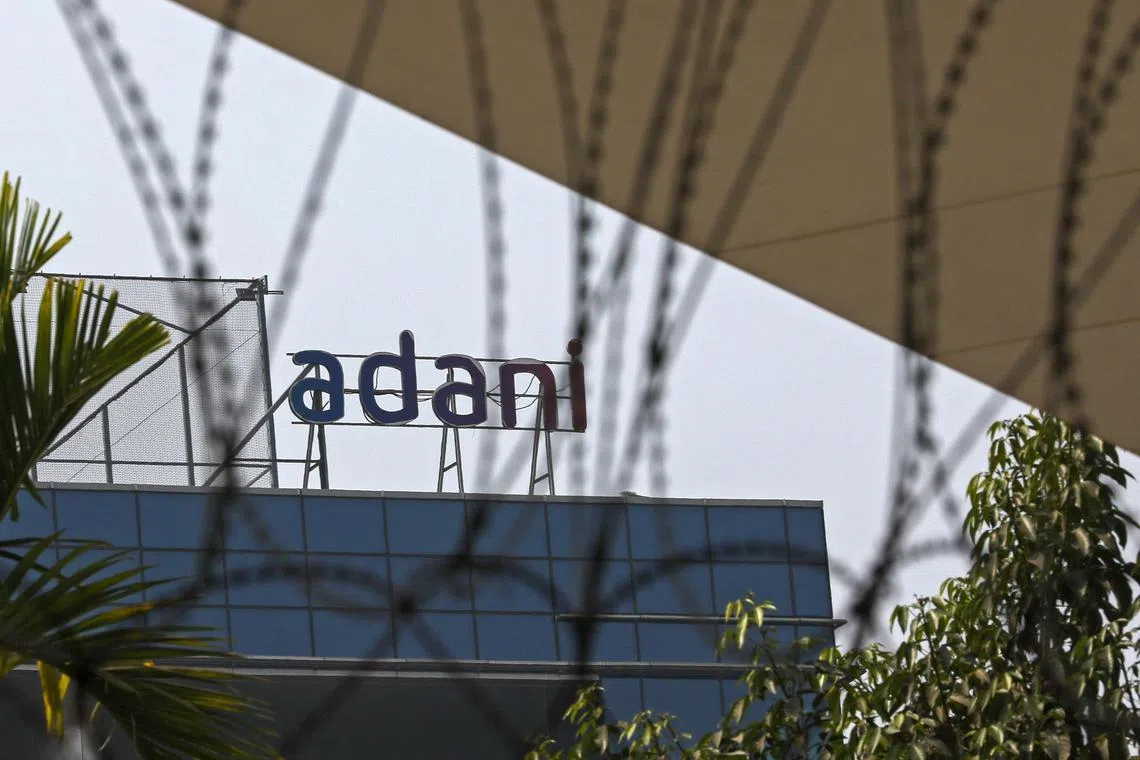Hindenburg bet against India’s Adani Group puzzles rival US short-sellers
Sign up now: Get ST's newsletters delivered to your inbox

US investors said they were intrigued about the actual mechanics of the short-selling as Indian securities rules make it hard for foreigners to bet against companies there.
PHOTO: EPA-EFE
NEW YORK – When Hindenburg Research revealed a short position in Adani Group
Hindenburg’s bet has been lucrative so far. Its allegations, which the Indian conglomerate has denied, have wiped out US$92 billion (S$120 billion) of market value
The short-seller has said it held its position, which profits from the fall in the value of Adani Group shares and bonds, “through US-traded bonds and non-Indian-traded derivatives, along with other non-Indian-traded reference securities”. But it has revealed little else about the size of its bets and the kind of derivatives and reference securities it used, leaving rivals wondering how the trade worked.
“I wanted to short it myself, but I was not able to find a way to do it with my prime broker,” said Citron Research founder Andrew Left, referring to Adani Enterprises and other companies.
Hindenburg declined to comment to Reuters on the method it used to place its bets against Adani. Adani Group and the stock market regulator, the Securities and Exchange Board of India (Sebi), did not respond to a request for comment.
Difficult to short
Typically, investors who want to bet that the company’s stock will fall borrow shares in the market and sell them, hoping to buy them back at a lower price, in a practice called short selling.
Short-sellers such as Hindenburg like to build positions quietly before unveiling their thesis about the company to maximise profits. Discretion is necessary for them, as word of their presence in the stock sometimes can be enough to cause the shares to fall.
In India, however, securities rules make it hard to quietly build positions. Institutional investors are required to disclose their short positions upfront and there are other restrictions and registration requirements for foreign investors.
With the Adani Group, there are added complications: The shareholding is concentrated in the hands of the Adani family and its shares do not trade on exchanges abroad.
Mr Nathan Anderson, Hindenburg’s founder, has been coy even with peers about his bet against Adani. Mr Left and Carson Block, the founder of Muddy Waters Research and another prominent short-seller, told Reuters that they got a single-word response – “thanks” – to messages of congratulations they sent to Mr Anderson, when usually they would talk shop.
Cracking the code of how Hindenburg did the trade could lead to more short-sellers taking positions against Indian companies, which have been rare, analysts said.
Derivative trades
Reuters could not learn details about Hindenburg’s trades. But several bankers familiar with trading in Indian securities said the more profitable piece of the short-seller’s bet would likely lie in the derivative trades it had placed.
Some of Adani’s United States dollar corporate bonds fell 15 cents to 20 cents in the days after the report was released, which would make that bet profitable.
But there are limits. Only a few billion dollars of bonds in total were outstanding and they were not easily available to borrow, one debt banker said.
A more profitable way, these bankers said, would be to place the bet via participatory notes, or P-notes, which are lightly regulated offshore derivatives based off shares of Indian companies.
The entities that create the P-notes are registered with the Indian stock market regulator, but anyone can invest in them without having to directly register with Sebi. An investor can further use intermediaries to obscure its position.
Moreover, the market for P-notes is large. Billions of dollars’ worth of P-notes are traded every year, regulatory data shows, making it possible to place large bets, the bankers said. REUTERS


